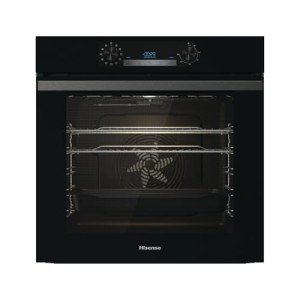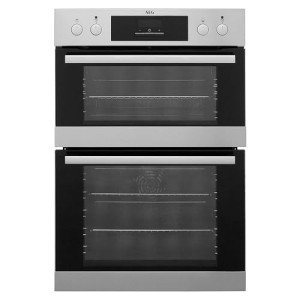Ten Built In Electric Ovens That Really Improve Your Life
페이지 정보
작성자 Ericka 작성일25-05-19 13:41 조회8회 댓글0건관련링크
본문
The Comprehensive Guide to Built-in Electric Ovens and Hobs
In today's hectic world, modern kitchen appliances have actually progressed drastically to accommodate the tastes and needs of modern homeowners. Amongst these appliances, built-in electric ovens and hobs stand apart for their effectiveness, style, and functionality. This short article explores the features, advantages, setup pointers, and maintenance of built-in electric ovens and hobs, together with resolving regularly asked concerns.
Comprehending Built-in Electric Ovens
What Is a Built-in Electric Oven?
A built-in electric oven is an appliance developed to be set up into a wall or kitchen cabinetry, supplying a seamless, integrated ovens uk look in the kitchen. Unlike freestanding ovens, built-in designs save space and frequently come geared up with additional functions such as self-cleaning cycles, convection cooking, and numerous cooking modes.

Kinds Of Built-in Electric Ovens
- Single Ovens: Ideal for smaller sized kitchens or those who cook for fewer people.
- Double Ovens: Offer more cooking space, appropriate for larger families or those who amuse often.
- Combination Ovens: These include both a traditional oven and a microwave, offering versatile cooking alternatives.
Advantages of Built-in Electric Ovens
| Benefit | Description |
|---|---|
| Space-Saving Design | Fits effortlessly into cabinetry, maximizing counter space. |
| Improved Aesthetics | Produces a modern, expert kitchen look. |
| Versatile Cooking Options | Often features multiple cooking modes consisting of bake, broil, and convection. |
| Energy Efficient | Consumes less energy than conventional ovens. |
Understanding Built-in Hobs
What Is a Built-in Hob?
A built-in hob is a cooking surface area set up into the kitchen counter top, integrating flawlessly with the kitchen style. Offered in electric, induction, and built in electric ovens gas varieties, electric hobs are renowned for their precision and ease of use.
Types of Built-in Hobs
- Electric Hobs: Traditional coil aspects that heat via electrical resistance.
- Induction Hobs: Use magnetic energy to heat just the pots and pans, making them faster and more secure.
- Ceramic Hobs: Feature a smooth surface with glowing heat beneath, offering simple cleaning.
Advantages of Built-in Hobs
| Benefit | Description |
|---|---|
| Fast Cooking Times | Electric hobs heat rapidly, decreasing general cooking time. |
| Easy to Clean | Flat surface enables quick and uncomplicated cleaning. |
| Durable | Traditionally built to last and endure heats. |
| Versatile Compatibility | Functions well with numerous cookware materials. |
Installation Considerations
Setting up a built-in electric oven and hob needs mindful preparation.
Actions for Installation
- Measure the Space: Ensure the dimensions of the oven and hob match the allocated space in your kitchen.
- Examine Electrical Requirements: Consult an electrician to ensure circuitry can manage the home appliance's power requirements.
- Positioning of Appliances: Position the oven at a practical height, typically between waist and eye level.
- Ventilation: Ensure correct ventilation, particularly if your oven includes a range hood.
Necessary Tools
- Power drill
- Screwdrivers
- Level
- Measuring tape
Safety Precautions
- Constantly detach the power before setup.
- Follow maker guidelines thoroughly.
- Think about employing a professional for electrical connections.
Maintenance Tips
Preserving built-in electric ovens and hobs is important for longevity and performance.
Regular Care Routine
- Cleaning the Surface: Use a soft cloth and manufacturer-recommended cleaner.
- Examining Electrical Connections: Check cords and plug for damages regularly.
- Cleaning up Filters: If the oven has a ventilator, tidy or replace the filters as required.
Repairing Common Issues
| Concern | Possible Solution |
|---|---|
| Oven Won't Heat | Check the power supply and heating component. |
| Heating Inconsistency | Inspect the thermostat and oven calibration. |
| Hob Not Heating | Guarantee pots and pans is compatible and inspect the power supply. |
Often Asked Questions
1. How do I choose the ideal size Built In Electric Ovens-in electric intergrated oven and hob?
Selecting the right size involves measuring your kitchen area and thinking about how much cooking you generally do. If you amuse often or have a large family, go with a double oven.
2. Are built-in electric hobs safe to use?
Yes, built-in electric hobs are safe, particularly induction hobs which just heat up the pots and pans, minimizing the risk of burns.
3. Can I set up a built-in oven and hob myself?
While it is possible for knowledgeable DIY lovers, working with a professional is recommended, especially for the electrical connections.
4. How often should I clean my built in range-in oven and hob?
Cleaning need to be done regularly after usage, with deep cleaning intervals depending on cooking frequency - typically every couple of months.
5. Do built-in appliances require unique upkeep?
Built-in appliances require similar upkeep to freestanding models, however correct care should be taken with their surrounding kitchen cabinetry.
Built-in electric ovens and hobs present a blend of innovation and design, offering efficiency and modern looks to any kitchen. With proper selection, mindful installation, and regular upkeep, these appliances can enhance one's cooking experience for several years. Comprehending the functions, benefits, and care requirements can empower property owners to produce the kitchen of their dreams-- efficiently and stylishly.
As cooking areas continue to evolve into main hubs of the home, selecting the right built in range-in solutions plays an essential role in day-to-day cooking imagination and satisfaction.

댓글목록
등록된 댓글이 없습니다.












